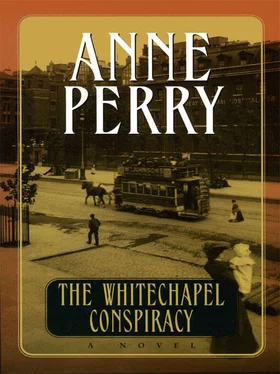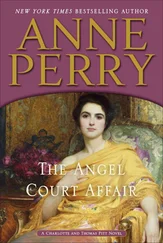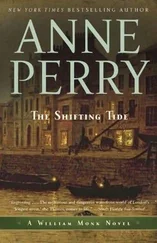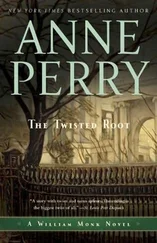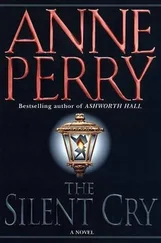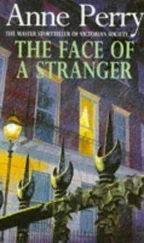“On the contrary,” Voisey retorted. “I am all for new ideas, if they are good ones. To fail to progress is to die.”
Vespasia looked at him with interest. It was an unusual point of view from one whose profession was so steeped in the past.
He did not smile back at her, as a less confident man might have done.
The Prince was already thinking of something else. His admiration for other people’s ideas seemed highly limited.
“Of course,” he dismissed airily. “The number of new inventions around is incredible. Ten years ago we would not have conceived what they could do with electricity.”
Voisey smiled very slightly, his eyes on Vespasia’s for an instant longer before he replied. “Indeed, sir. One wonders what may yet be to come.” He was polite, but Vespasia heard the faintest thread of contempt in his voice. He was a man of ideas, broad concepts, revolutions of the mind. Details did not hold his regard; they were for smaller men, men whose view was conceived from a lower level.
They were joined by a noted architect and his wife, and the conversation became general. The Prince glanced at Vespasia with regret, a shred of humor, and then played his part in the trivialities.
Vespasia was able to excuse herself and moved on to speak to a politician she had known for years. He looked weary and amused, his face deeply lined, full of character. They had shared personal crusades in the past, triumph and tragedy, and a fair share of farce.
“Good evening, Somerset,” she said with genuine pleasure. She had forgotten how fond of him she had been. His failures had been magnificent, as had his successes, and he had carried them both with grace.
“Lady Vespasia!” His eyes were alight. “Suddenly a breath of sanity!” He took the hand she offered, barely brushing it with his lips in a gesture rather than an act. “I wish we had a new crusade, but this is beyond even us, I think.” He glanced around at the opulent room and the ever-increasing number of men and women in it, laughing together, diamonds blazing, light on silks and pale skin, swathes of lace, shimmering brocades. His eyes hardened. “It will destroy itself… if it doesn’t see sense in the next year or two.” There was regret in his voice, and confusion. “Why can’t they see that?”
“Do you really think so?” She assumed for a moment that perhaps he was speaking for effect, a little dramatic overstatement. Then she saw the tightness of his lips and the shadow over his eyes. “You do…”
He turned to her. “If Bertie doesn’t curtail his spending a great deal”-he inclined his head momentarily towards the Prince of Wales ten yards away, laughing uproariously at someone’s joke-”and the Queen doesn’t come back into public life and start courting her people again.” There was another guffaw of laughter a few yards away.
Somerset Carlisle lowered his voice. “Lots of us suffer grief, Vespasia. Most of us lose something we love in our lives. We can’t afford to give up-stop working because of it. The country is made up of a few aristocrats, hundreds of thousands of doctors, lawyers, and priests, a million or two shopkeepers and traders of one sort or another, and farmers. And dozens of millions of ordinary men and women who work from dawn to dusk because they have to, to feed those who depend on them, the old and the young. Men die, and women break their hearts. We go on.”
Somewhere at the far end of the room the music started. There was a tinkle of glass.
“You can’t lead people from more than a certain distance away,” he went on. “She isn’t one of us anymore. She has allowed herself to become irrelevant. And Bertie is too much one of us, with his appetites-only he isn’t indulging them on his own money, as the rest of us have to!”
Vespasia knew that what he said was true, but she had not heard anyone else put it quite so boldly. Somerset Carlisle had an irresponsible wit and a high sense of the bizarre, which she knew only too well. She still felt a note of hysteria rise inside her when she thought of their past battles and the grotesque things he had done in his attempts to force through reform. But she knew him too well to think he was joking or exaggerating now.
“ Victoria will be the last monarch,” he said almost under his breath, a harsh edge of regret in his voice. “If some people have their way… believe me. There is unrest in the country more profound than anything we’ve had in two centuries or more. The poverty in some places is almost unbelievable, not to mention the anti-Catholic feeling, the fear of the liberal Jews who’ve come into London after the ‘48 revolutions in Europe, and of course there are always the Irish.”
“Exactly,” she agreed. “We’ve always had most of these elements. Why now, Somerset?”
He remained silent for several moments. People passed them. One or two spoke, and the others nodded in acknowledgment but did not intrude.
“I’m not sure,” he said finally. “A mixture of things. Time. It’s nearly thirty years since Prince Albert died. That’s a long time to live without an effective monarch. We have a whole generation who are beginning to realize we can manage fairly well without one.” He lifted one shoulder slightly. “I don’t personally agree with them. I think the mere existence of a monarch, whether that monarch does anything or not, is a safeguard against many of the abuses of power, which perhaps we don’t realize, simply because we have had that shield so long. A constitutional monarchy, of course. The prime minister should be the head of the nation, and the monarch the heart. I think it is very wise not to have both in the one figure.” He gave a twisted, little smile. “It means we can change our minds when we find we are mistaken without committing suicide.”
“It is also who we are,” she said, equally softly. “We have had a throne for a thousand years, and the notion of it far longer. I don’t think I care to change.”
“Nor I.” He grinned at her suddenly, lighting his face with a wild humor. “I am too old for it!” He was at least thirty-five years younger than she.
She gave him a look that should have frozen him at twenty paces, and she knew it would not.
They were joined by a slender man, little more than Vespasia’s height, with a shock of dark hair threaded through with gray at the temples. He had very dark eyes, a long nose and a sensitive mouth, deeply lined at each side. He looked intelligent, wry, and weary, as if he had seen too much of life and his compassion for it was growing thin.
“Evening, Narraway.” Carlisle regarded him with interest. “Lady Vespasia, may I present Victor Narraway. He is head of Special Branch. I’m not sure if that is supposed to be a secret or not, but you know a score of people you could ask, if it interested you. Lady Vespasia Cumming-Gould.”
Narraway bowed and made the appropriate acknowledgment.
“Thought you’d be far too busy ferreting out anarchists to waste your time in chatter and dancing,” Carlisle said dryly. “ England safe for the night, is it?”
Narraway smiled. “Not all the danger is lurking in dark alleys in Limehouse,” he replied. “To be any real threat it would have to have tentacles a great deal longer than that.”
Vespasia watched him closely, trying to make some estimate in her mind as to whether he believed as Carlisle did, but she could not separate the amusement from the sadness in his eyes. A moment later he was making some remark about the foreign secretary, and the conversation swept past the subject and became trivial.
An hour later, with the strains of a waltz sweet and lilting in the background, Vespasia was enjoying an excellent champagne and a while seated alone, when she was aware of the Prince of Wales a dozen feet away from her. He was in conversation with a solidly built man of middle age with a pleasant, earnest face and a quiff of hair that was thinning markedly on the top. They seemed to be speaking of sugar.
Читать дальше
